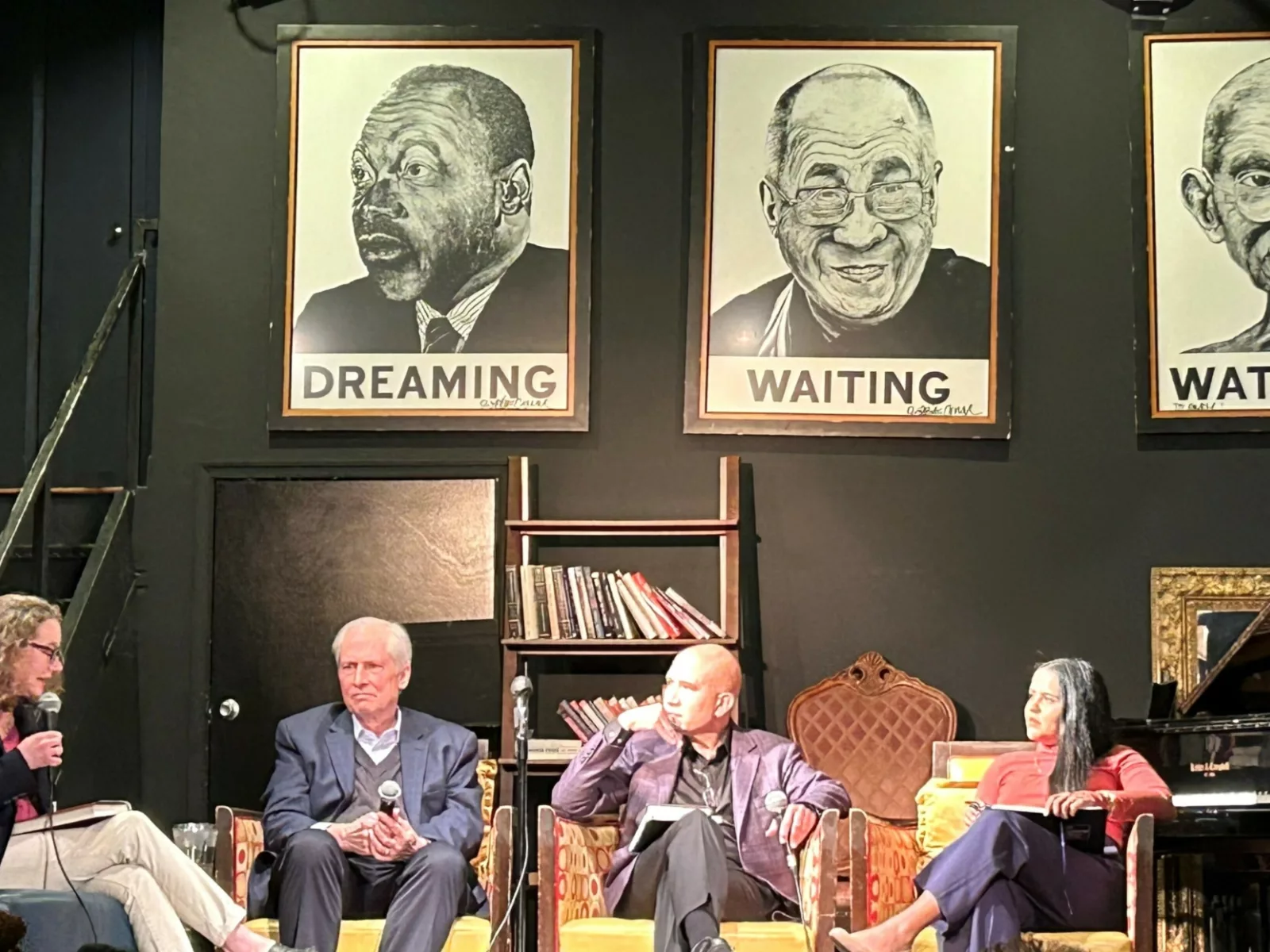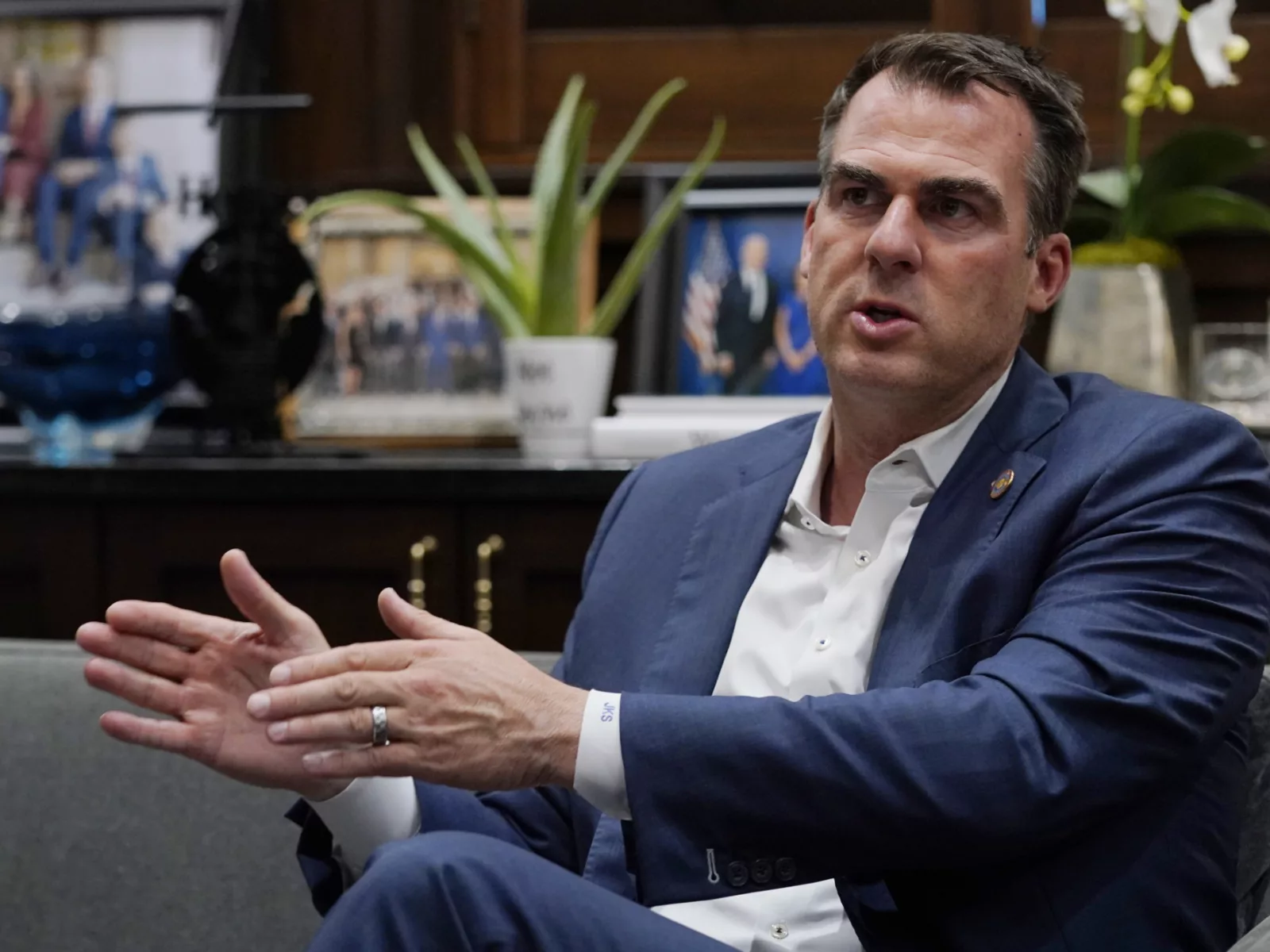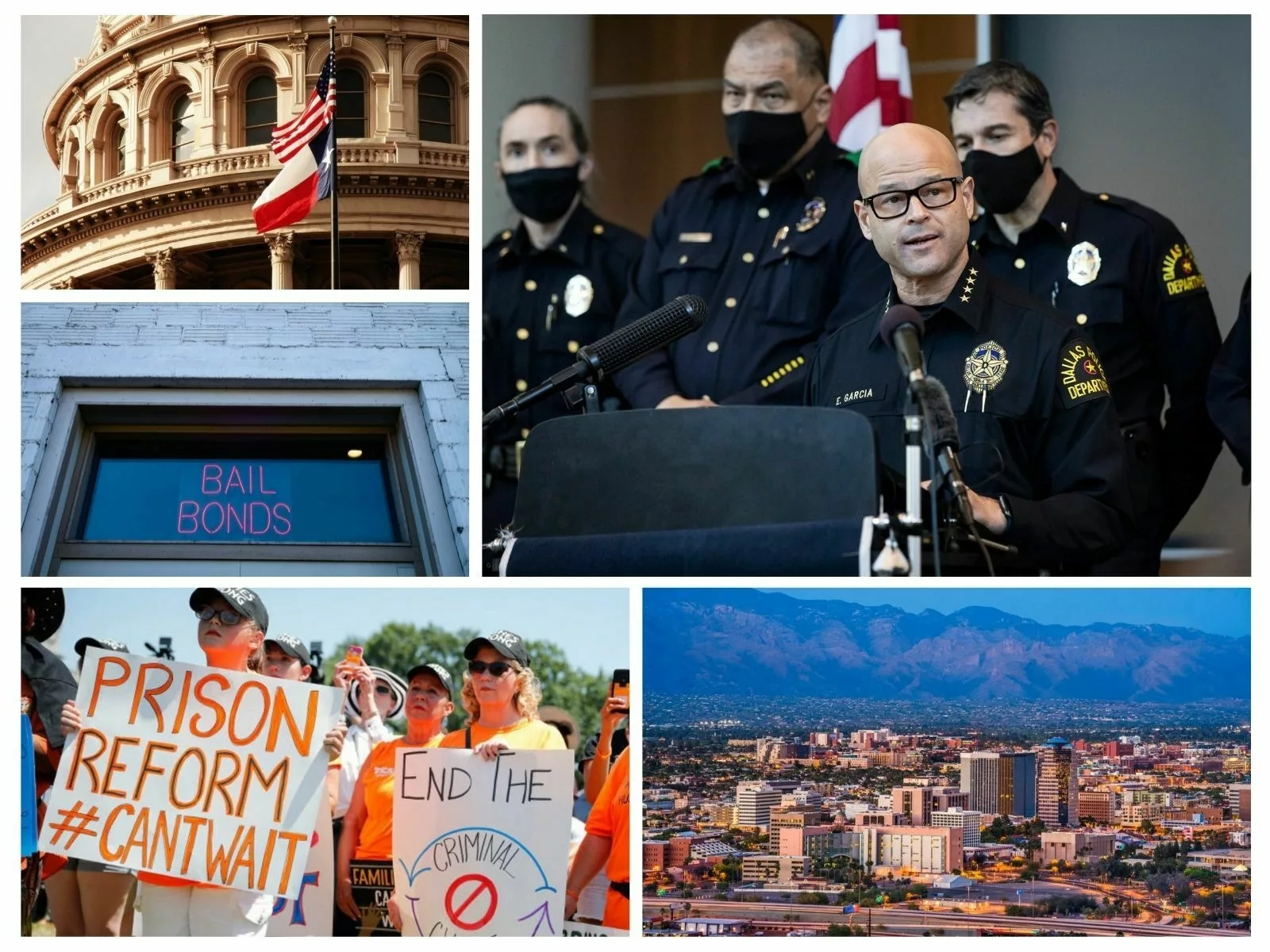In Kansas, Nykia Gatson, 21, has suffered under court debt for years. Gatson first entered the juvenile justice system when she was arrested for stealing at age 10, and her justice involvement grew from there. She was 14, she said, when she began to notice the costs adding up.
Probation fees. House arrest fees. Urinalysis fees. Restitution. The list of what she owed went on.
“As a young person in the community who’s paying that out of pocket, and sometimes isn’t even legal to work, it kind of makes it hard,” Gatson said.
For millions of young people across America, fines and fees imposed by state juvenile justice systems are a burden that crushes them and their families with debt and pushes them deeper into poverty.
In many cases, fines and fees are primarily a burden to a young person’s family. But Gatson’s mother and father both died while she was locked up in the Kansas Juvenile Correctional Complex, and she was left to pay the costs on her own.
When she received checks for her mother’s Social Security benefits, the state took them. When she received pay for working in the juvenile facility where she was housed, the state garnished half of her wages. Still, some of this old debt is following her, making it difficult to build credit or rent an apartment.
At the same time, Gatson said, she received little support that would allow her to succeed when she was released. “There were barely any resources to help me rehabilitate and reintegrate back into society in a healthy way instead of reoffending,” she said. “They put children in a position to survive on their own, to be adults.”
Because of experiences like Gatson’s, advocates launched Debt Free Justice, a 50-state, national campaign that connects local organizations working to end juvenile fines and fees, a practice that most states use to charge youth and their families for any justice-system contact or court-ordered services. Advocates say it undermines community health, economic stability, and trust in public systems.
Nykia Gatson
Nykia Gatson first entered the Kansas juvenile justice system for stealing when she was just 10. By the time she was 15, she had been expelled from school and was behind bars again, facing much more serious charges. While she was imprisoned, both of her parents passed away, leaving her without a guardian. Listen to her story.
“Anytime a young person has to pay money because they’re involved in the justice system, it’s very harmful,” said Nadia Mozaffar, senior attorney at the Juvenile Law Center, an organization that leads the Debt Free Justice campaign alongside the Policy Advocacy Clinic at Berkeley Law and the National Center of Youth Law (NCYL). “They don’t have money because they’re kids coming from under-resourced communities. Their families don’t have the resources to pay for basic necessities, let alone additional fees, and that’s often the reason they’re getting caught up in the system in the first place.”
By pushing for legislative changes, Debt Free Justice is helping states make progress, ushering in bans on unjust monetary penalties and relieving youth of crippling court debt.
‘Fines and Fees Carry Consequences’
Local governments often rely on money from fines and fees to fund public services. The issue first entered the national consciousness in 2015, when the Justice Department published its landmark investigation of police practices in Ferguson, Missouri. That report showed that the city used fines and fees to maximize revenue. Police conducted unconstitutional stops and arrests of Black citizens disproportionately, while courts levied fines and fees and imposed harsh penalties for nonpayment, eroding public trust in local government.
“The Ferguson report was the moment when people nationwide realized this was a problem,” said Cybele Kotonias, director of criminal justice at Arnold Ventures. “Fines and fees are a way that the government extracts revenue from the people with the lowest means.”
Yet research shows that fines and fees don’t work well as a revenue stream. For most jurisdictions, it costs more than a dollar to collect each dollar of outstanding court debt.
Meanwhile, for young people like Gatson, fines and fees are devastating, trapping them in the system and setting them up for failure. Monetary penalties increase the likelihood that youth will reoffend. Young people who can’t pay end up on probation, face additional court dates, and can’t get a driver’s license. When they reach adulthood, they may face wage garnishment and bankruptcies that make it impossible to take out student loans.
“In most cases, fines and fees carry consequences that can last long after the kid’s experience with the justice system,” said Devan Shea, deputy director of the Policy Advocacy Clinic.
A Future Shouldn’t be Fined
So much life is ahead of our youth. They are our next leaders, liaisons, and legends. Yet these unfair court debts hold them back at a young age and cause a trauma that simply can’t be erased. When children are stifled with these unnecessary fees and fines, they aren’t given optimal solutions.
The Landscape of Reform
Debt Free Justice is working across the country to alleviate these consequences through legislation. The campaign’s gold standard law includes three important changes to the juvenile justice system: eliminating all fines, banning all fees, and making these changes retroactive.
“The overall goal of this campaign is to abolish juvenile fines and fees across all 50 states,” said Miranda Sheffield, campaign coordinator at NCYL.
Many jurisdictions have taken major actions. Five states — Delaware, Maryland, New Jersey, New Mexico, and Oregon — have abolished all fines and fees in the juvenile justice system. Another four — California, Colorado, Louisiana, and Nevada — have eliminated all juvenile court fees. Among these states, California, Colorado, Maryland, New Jersey, and Oregon have also relieved youth and families of mountains of outstanding debt. In California, debt relief amounted to $360 million dollars.
Seven states — Indiana, New Hampshire, Oklahoma, Texas, Utah, Virginia, and Washington — have abolished or capped at least some fees for practices such as juvenile detention and diversion programs. Some of these have introduced legislation to eliminate remaining fees.
There’s also been local action on the problem. In 2021, Michigan’s Macomb County Circuit Court abolished many fees and relieved youth and families of $84 million of debt, and Georgia’s Chatham County Juvenile court abolished discretionary fees and fines. In 2022, Wyoming’s Albany County abolished youth diversion fees.
Other state campaigns are still fighting for change. Arizona, Delaware, Florida, Idaho, Illinois, Michigan, Mississippi, Pennsylvania, and South Carolina have all introduced legislation to abolish some or all juvenile fines or fees. Advocates are also seeking to end juvenile restitution payments, a measure introduced by bills in both Delaware and Michigan.
Action on juvenile fines and fees has not been confined to the blue states traditionally associated with justice reforms.
“There are a lot of criminal justice reform-minded Republicans out there, so we actually have bipartisan support for a lot of these bills,” Shea said. “This is an issue that a lot of center-right and libertarian conservatives get behind, because they see monetary penalties as a form of regressive taxation.”
Sharing Lessons
The coordinators at Debt Free Justice are particularly interested in sharing methods to garner such support. The campaign has played an instrumental role in helping local groups to organize, bring the right stakeholders to the table, and develop messaging to advance legislation.
“Each state has different mechanisms and different problems to overcome,” Sheffield said. “We bring together local partners to help them share solutions with one another.”
They recommend that local advocates speak to court officers, probation chiefs, and others involved in fines and fees to learn how invested they are in the practice. In places where agencies believe monetary penalties are necessary to generate revenue, campaigners can show that fines and fees are likely not bringing in much revenue. Many successful state campaigns have benefited from sharing testimony with lawmakers from youth and families affected by court debt.
Debt Free Justice also helps to bring stakeholders together with their counterparts in other states to discuss the problem and the possibilities for change. Recently, for example, the campaign introduced the juvenile justice directors from Utah and Idaho to each other, which allowed them to share concerns as they consider a post-fines-and-fees landscape.
In November, the Policy Advocacy Clinic will host a national meeting that brings together state and local coordinators to discuss strategies that move legislation forward.
‘A Step Forward’
Louisiana is a particularly encouraging success story. In New Orleans Parish, Ernest Johnson, a charismatic local organizer whose own child was once involved in the juvenile justice system, saw the harm that youth fines and fees were causing to Black families. In 2018, Johnson’s organization, Ubuntu Village, worked with Berkeley Law’s Policy Advocacy Clinic and local judges to establish a new court rule abolishing many categories of juvenile fees.
Ubuntu Village then worked with the Policy Advocacy Clinic, under the auspices of Debt Free Justice, to coordinate a statewide campaign. Collaborating closely with the juvenile public defender’s office, local law schools, and community-based organizations, they addressed lawmakers about the issue, heard testimony from parents affected by their children’s fines and fees, and helped representatives at the state’s Office of Juvenile Justice understand that eliminating fines and fees would not affect the agency’s budget.
In 2021, lawmakers passed a bill banning fines and fees statewide, and Gov. John Bel Edwards signed it into law. The law is now in its implementation phase. While Johnson fears repeal or roll backs, he is hopeful.
“We have to continue to do the work of implementation,” Johnson said, “but it’s a step forward.”
A New Campaign

For Gatson, the struggle continues. In her home state of Kansas, legislation to eliminate juvenile fines and fees has not yet been forthcoming — let alone action that would cancel outstanding court debt.
Today, Debt Free Justice is working with the Kansas organization Progeny to build a campaign that will end juvenile fines and fees, as many other states have done. In June, they hosted a national listening session in Wichita with young people to help community stakeholders understand the hardships that fines and fees impose on youth.
By telling her story, Gatson hopes to be a part of change. She wants to see new laws, not just to benefit her but to help the many other people who were caught in the system as kids and still live under the shadow of court debt.
“We want to go to legislators and have conversations with them about adjusting policy and implementing something different,” Gatson said. “We want to get these debts cut down.”





















